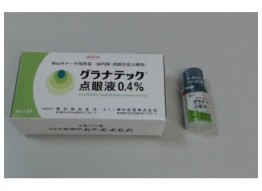
Scientific Endorsement of Eclar Plaster with Deprodone Propionate for Alleviating Inflammation, Scarring, and Keloids
Is Eclar Plaster with Deprodone Propionate Really Effective?
Eclar plaster, enhanced with deprodone propionate, emerges as a promising remedy for a range of dermatological issues. From eczema to psoriasis, its effectiveness spans various skin conditions, including the complex realm of scars and keloids. Here, we delve into the scientific validation of Eclar adhesive, exploring its role in scar treatment based on research findings and clinical evidence.
Eclar adhesive taps into the potential of deprodone propionate, a synthetic glucocorticoid corticosteroid renowned for its anti-inflammatory prowess. This compound has garnered attention not just for its efficacy in tackling common skin ailments like eczema and dermatitis but also for its notable impact on scar and keloid management.
Scientific Confirmation
Studies have illuminated the effectiveness of corticosteroid tapes/plasters, particularly in preventing keloid and hypertrophic scar formation post-surgery. Notably, in Japan, where Eclar adhesive sees widespread use, corticosteroid tapes have long been fundamental in scar management protocols.
In an article titled "Steroidal Tape: A Promising Addition to Scar Treatment," researchers highlighted the advantages of tape formulations over injectables. They observed that tape formulations facilitate a more consistent delivery of steroid concentration to the scar, minimizing the fluctuations seen with injectable forms. This sustained delivery mechanism plays a crucial role in alleviating the pathophysiological processes underlying hypertrophic and keloid scars.


In another article titled “Update on the Latest Algorithms for Treating and Preventing Hypertrophic Scars and Keloids: A 2020 Revision of Algorithms from a Decade Ago,” Japanese researchers demonstrated the efficacy of deprodone propionate plaster in effectively reducing early hypertrophic scars and keloids. This led to its recommendation as a primary conservative therapy for these conditions in the official Japanese dermatology guidelines since 2019.
The book "Textbook on Scar Management: Advanced Techniques and Emerging Approaches" explicitly states that, in the author's experience, deprodone propionate tape (marketed as Eclar® plaster) is the most effective option for treating and preventing keloids. Studies have shown that Eclar plaster outperforms commonly used fludroxycortide tape in the UK and flurandrenolide tape widely utilized in the US.
Comparative Effectiveness
In comparative studies, Eclar adhesive has exhibited superiority over other corticosteroid tapes commonly used in various regions. Unlike fludroxycortide tape prevalent in the UK or flurandrenolide tape widespread in the US, Eclar adhesive emerges as notably more effective in addressing keloids and hypertrophic scars.
The scientific validation of Eclar adhesive with deprodone propionate presents a compelling narrative in scar management. Supported by research articles, clinical directives, and expert commendations, Eclar adhesive emerges as a potent therapeutic intervention for inflammation, scarring, and keloids. Its sustained efficacy, along with comparative advantages, underscores its significance in dermatological practice, particularly in the context of scar and keloid management.


